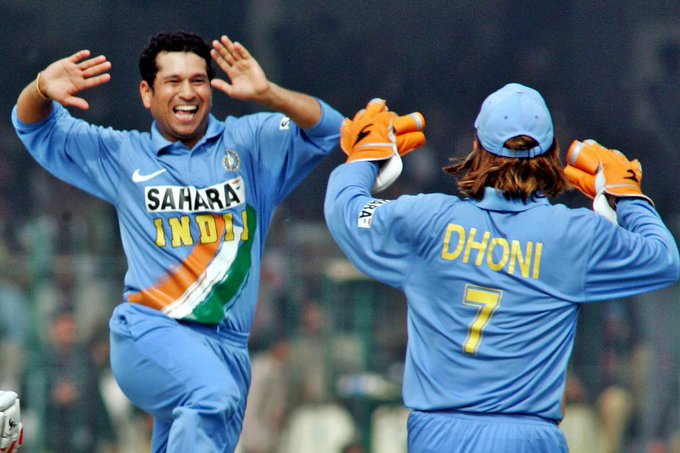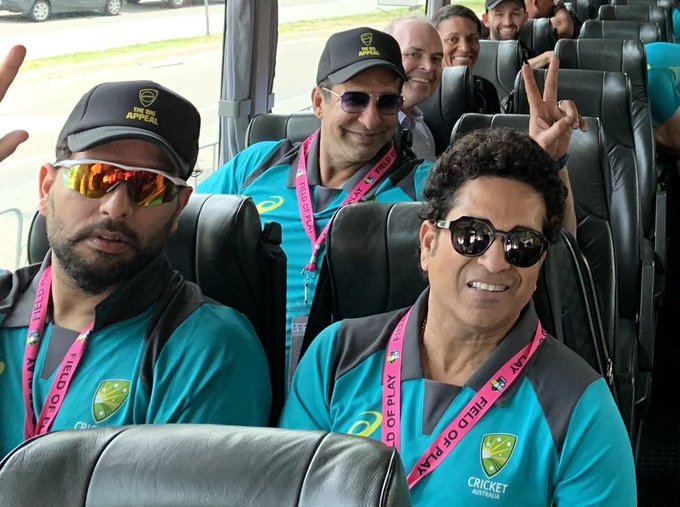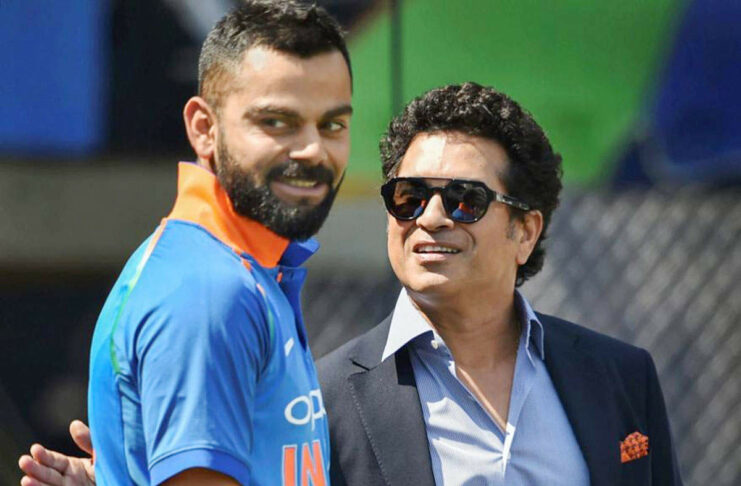The ICC’s latest diktat of the banning of saliva on health grounds when cricket resumes post the coronavirus pandemic adds further pressure on bowlers. With broad bats, flat pitches, shorter boundaries, the ban on saliva further adds more pressure to their skills.
Saliva is used to shine the ball on one side so that they can get some swing in the air. With only sweat allowed and no saliva, the move has come in for some skepticism with Wasim Akram, the Pakistan pace legend saying that “bowlers will be reduced to robots.”
Even Australian pacers Pat Cummins, Josh Hazlewood and Mitchell Starc have expressed reservations with the move, calling it tough, ‘boring’ and asking the ICC to explore different options.
However, the ICC will do well to listen to one legendary cricketer who has always strived for equal balance between bat and ball in order to keep the standard of the game high.
Since his retirement, Sachin Tendulkar, the greatest cricketer in the world, has called for an equal contest between bat and ball. He has been advocating this move for the past three years.
In the post-coronavirus world, with cricket all set to reboot with new playing conditions, Sachin Tendulkar’s suggestions are revolutionary and way ahead of it’s time.
Second new ball after 50 overs
During an interaction with former Australia pacer Brett Lee, Tendulkar called for a change in introducing the second new ball. Normally in Test matches, the second new ball is taken after 80 overs. In the post-COVID19 world, Tendulkar has called for introducing the new ball much earlier.

“In Test cricket, suddenly if the surfaces are not good, the standard of playing I feel drops down.
“And above all the game slows down because, the batters know if I don’t play a stupid shot here, no one can get me out and the bowler knows, on this surface I have to be patient.
“But why not then to get the game moving, have a new ball after every 45-50 or 55 overs because in ODI cricket we have to play only 50 overs, and you have two new balls there, so literally 25 overs, so that’s it,” Tendulkar said.
The move will give a new dimension to Test cricket. Traditionally, in flat pitches, once the shine of the new ball goes away, then batting becomes easier.
With no swing and no assistance from the wicket, it becomes a batting paradise. With an early introduction of the new ball, the contest between bat and ball is slightly adjusted.
For that to work, it must be important that the pitches are good for bowling as well as batting.
The classic case in point is Adelaide in Australia. For a long time, the wicket in Adelaide was a batting paradise which would later break and assist the spinners.
Now, with the Pink Ball Test a regular feature there, the pitches were changed and they assisted swing bowling a lot.
For Sachin Tendulkar’s suggestion to work, the ICC must work closely with host boards to prepare excellent pitches.
Not the first time
This is not the first time that Tendulkar has advocated this change. During the Hindustan Times Leadership Summit in 2017, Tendulkar highlighted this aspect and also called upon engaging rivalries to ensure Test cricket is thriving.

“To engage the crowd, there must be an even contest between bat and ball. Playing with two different types of balls on different surfaces will level the playing field between bat and ball and make the competition interesting,” Tendulkar said.
The former India captain also stressed a different style of playing bilateral series.
“It will be a good idea to play back-to-back Test matches on a home-and-away basis. It will make the matches more exciting. For example, let India host two Tests at home and then let England host India in the next two,” Tendulkar stressed at that time.
The ICC World Test Championship is somewhat on the lines of that suggestion, with all nations playing three series at home and three away.
However, this situation could be used for in the next cycle as the coronavirus pandemic threatens to annul the current Test and ODI championships from 2019 to 2021.
The cricketing world has gotten a reboot due to the coronavirus pandemic. It is important for the ICC and host nation boards to step up and make cricket viewable.
For that, listening to Sachin Tendulkar could go a long way in ensuring cricket flourishes.

